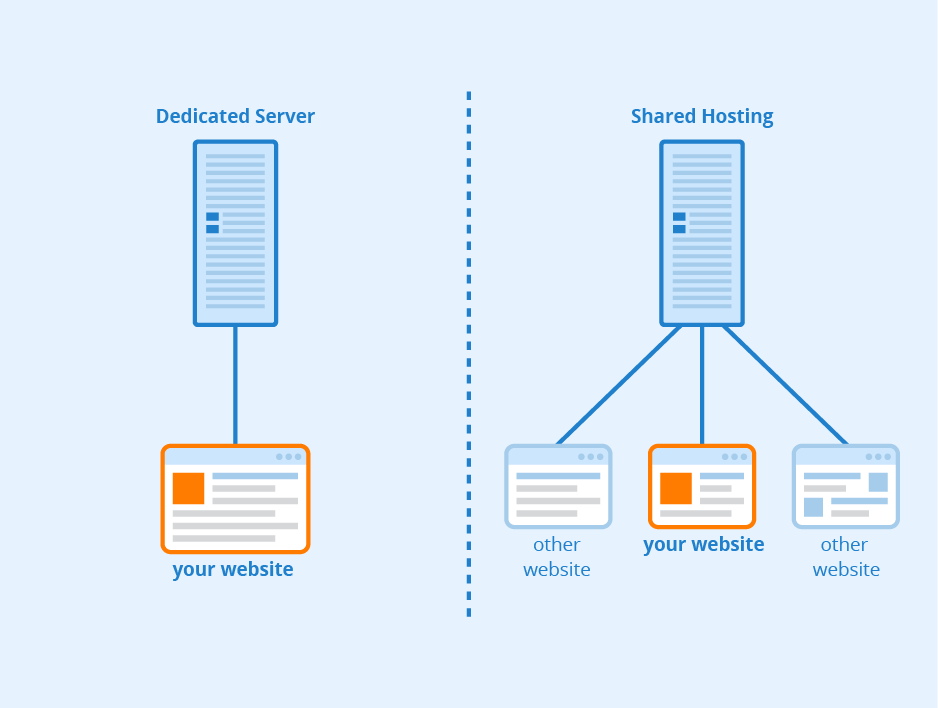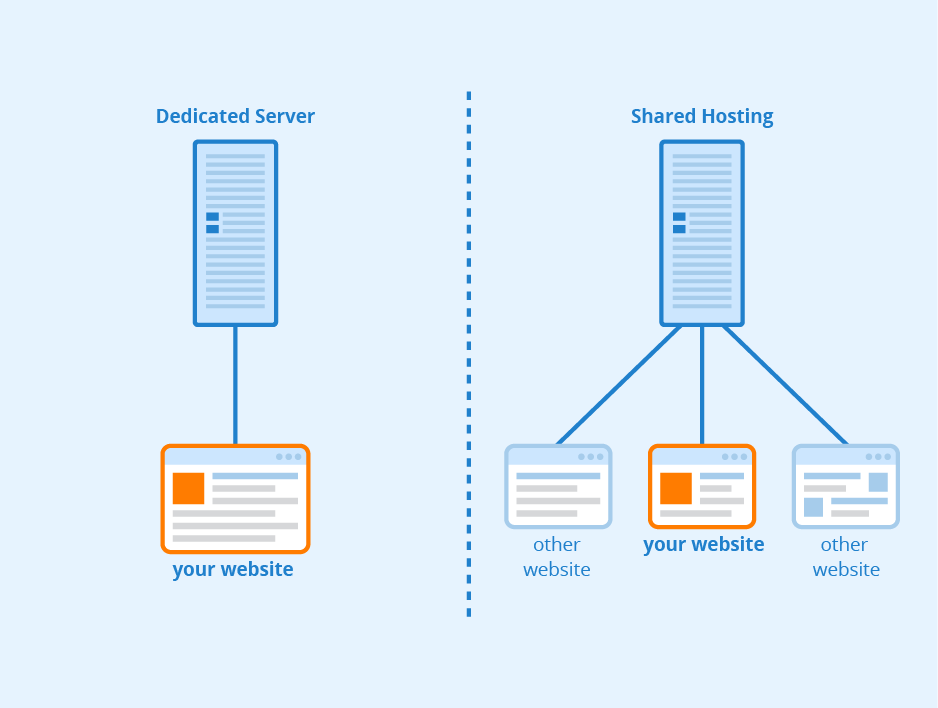Web hosting is the backbone of every website, and one popular option is Single Shared Hosting. But what exactly does it entail? Single Shared Hosting is a cost-effective solution where multiple websites are hosted on a single server. This means that resources, such as CPU, RAM, and disk space, are shared among these websites, allowing for lower costs and efficient resource management.
With Single Shared Hosting, you can enjoy the benefits of professional hosting services without breaking the bank. This hosting option is perfect for small businesses, startups, and individuals looking to establish an online presence without the need for extensive technical knowledge or a large budget. By sharing resources, Single Shared Hosting allows you to access high-quality hosting at an affordable price, making it an excellent choice for those starting out in the digital world.
Single Shared Hosting is an affordable web hosting solution where multiple websites are hosted on a single server. It offers cost-effectiveness and easy management for individuals and small businesses. With shared resources, such as CPU, RAM, and storage, it allows websites to be hosted at an affordable price. However, shared hosting may not be suitable for websites with high traffic or resource-intensive applications. It’s a great option for those starting out or with low to moderate traffic websites.

Understanding Single Shared Hosting
Single Shared Hosting is a type of web hosting service that allows multiple websites to share the same server resources. In this arrangement, a server is divided into multiple hosting accounts, with each account hosting a single website. This hosting option is often suitable for small businesses, personal websites, and startups who have limited requirements and a lower budget.
With Single Shared Hosting, the server’s resources such as processing power, memory, and storage are shared among multiple websites. This means that the cost of hosting is split among the users, making it an affordable option. However, since the resources are shared, the performance of your website may be impacted by other websites on the same server. If a website on the server experiences a sudden increase in traffic or utilizes a large amount of resources, it can potentially affect the performance of other websites on the server.
Despite the potential performance impact, Single Shared Hosting offers several advantages. It is easy to set up, requires no technical expertise, and is cost-effective. Most hosting providers offer user-friendly control panels and one-click installation options for popular content management systems, such as WordPress, making it accessible for beginners and non-technical users.
Benefits of Single Shared Hosting
Single Shared Hosting comes with various benefits that make it an attractive option for individuals and small businesses:
- Cost-effective: Single Shared Hosting is one of the most affordable hosting options available. Since the resources are shared among multiple websites, the cost is distributed, resulting in lower hosting fees.
- Easy to manage: Hosting providers typically offer user-friendly control panels that allow easy management of your website, email accounts, and other hosting features. This makes it a suitable option for non-technical users.
- Quick setup: Single Shared Hosting usually comes with pre-installed applications and one-click installers, making it quick and easy to set up a website.
- Support: Hosting providers offer technical support to assist with any hosting-related issues or queries.
While Single Shared Hosting offers many advantages, it’s important to consider the limitations and potential drawbacks before making a decision.
Limitations and Considerations
Here are some factors to consider when opting for Single Shared Hosting:
- Limited resources: Since resources are shared among multiple websites, there is a limit to the amount of processing power, memory, and storage you can use. If your website requires high performance or has significant resource needs, you may need to consider other hosting options.
- Performance impact: If other websites on the shared server experience a sudden increase in traffic or utilize excessive resources, it can potentially affect the performance of your website.
- Security risks: Shared hosting environments can be more vulnerable to security breaches compared to dedicated hosting options. If one website on the server is compromised, it can potentially impact other websites on the same server.
- Restrictions: Shared hosting plans may have limitations on the software you can install or the server settings you can modify. This can restrict certain functionalities or customization options for your website.
Choosing the Right Single Shared Hosting Provider
When selecting a Single Shared Hosting provider, it’s important to consider various factors to ensure a reliable and secure hosting experience:
- Reputation and reliability: Research the reputation and reliability of the hosting provider. Look for reviews and feedback from other users to gauge their performance and customer support.
- Uptime guarantee: Check if the hosting provider offers an uptime guarantee. A higher uptime percentage ensures that your website will be accessible to visitors most of the time.
- Scalability options: Consider the scalability options provided by the hosting provider. If your website grows and requires additional resources, it’s important to have the flexibility to upgrade your hosting plan.
- Security measures: Inquire about the security measures implemented by the hosting provider. This includes features such as malware scanning, firewalls, data backups, and SSL certificates for secure data transmission.
- Customer support: Evaluate the level of customer support provided by the hosting provider. Look for options such as 24/7 support, live chat, and a responsive support team to assist you in case of any issues or concerns.
Conclusion
Single Shared Hosting is a cost-effective and accessible option for individuals and small businesses looking to establish an online presence. By sharing server resources, it offers an affordable hosting solution with easy setup and management. However, it’s essential to consider the limitations and potential performance impact that come with shared hosting.
When choosing a Single Shared Hosting provider, research and consider factors such as reputation, reliability, uptime guarantee, scalability options, security measures, and customer support. By selecting a reputable hosting provider that meets your requirements, you can ensure a reliable and secure hosting experience for your website.
Key Takeaways: What is Single Shared Hosting?
1. Single shared hosting is a type of web hosting service where multiple websites are hosted on a single server.
2. It is a cost-effective option for small businesses or individuals who have low traffic websites.
3. With single shared hosting, resources such as CPU, RAM, and disk space are shared among all the websites on the server.
4. Shared hosting offers limited customization and security compared to other types of hosting.
5. It is important to choose a reliable hosting provider to ensure optimal performance and uptime for your website.
Single Shared Hosting is a type of hosting service where multiple websites share resources on a single server. It is a cost-effective option for small businesses or individuals with basic websites.
With Single Shared Hosting, you get a set amount of disk space, bandwidth, and other resources that are shared among all the websites hosted on the server. While it’s a budget-friendly choice, it may have limitations on website performance and scalability.

